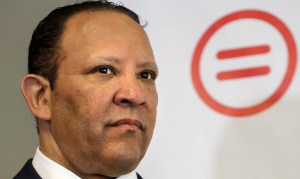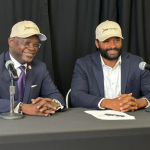By Briana Thomas,
Special to the AFRO
In honor of Black History Month, the D.C. Democratic Women’s Club (DCDWC) held a virtual program on Feb. 8 to discuss Critical Race Theory.
The panel discussion was moderated by Dr. Ayo Sekai and included the Hon. Sharon Pratt, Esq.; Hon. Dr. Frank Smith, Rev. Dr. George Holmes; Emira Woods, and Dr. C. Patrick Burroughs, among a couple other special guests. The event was held in line with the organization’s mission since its charter in 1966, which is to promote candidacy for women, advocacy, mentoring and training to empower and successfully engage women at all levels of the Democratic Paty.
Jeannette Mobley, DCDWC president and host of the free program, opened the program by highlighting past and present achievements of Black history makers, including paying homage to Washington, D.C.-based scholar Carter G. Woodson, the creator of Black History Month.
Mobley said that she had been hearing conversations surrounding the topic of Critical Race Theory (CRT), and wanted the program to educate attendees on the truths regarding the popular topic.
“When I heard, and when we, the club, heard conservative media talking negatively about it and Democrats, we knew then it was something good and that would benefit our Community,” Mobley said. “We will be given examples and find out what it is and what it isn’t and… you will learn the truth about Critical Race Theory.”
Sekai asked each of the panelists to define CRT based on their fields of expertise. The responses addressed the industries of political science, media, education, history, and religion.
Former D.C. Mayor and current director of the Institute of Politics, Policy and History at the University of the District of Columbia, Pratt, explained CRT from her own lens as not a “thing,” but an approach.
“It’s an analytical approach to looking at policy in an interdisciplinary way. Where you look at how race based originally slavery impacted those policies and obviously you don’t do anything like that, unless you’re in graduate school or law school, nobody is teaching this in elementary school, nobody is teaching this in secondary school,” Pratt said.

Across America, Republican-led states have passed legislation or administrative actions to ban or limit the teaching of CRT and related concepts in K-12 public schools.
The Republican narrative has been that CRT is a threat and harmful to be taught in schools.
Pratt said this thinking is a shortcut to saying “we don’t want to talk about it.”
Smith, director of the African American Civil War Memorial and Museum, said there’s no way to teach American history without teaching about slavery and Jim Crow.
“I think this whole idea that you can’t teach a slate of Americans slavery because it offends Whites or is what they call, a really clever notion of ‘reverse racism’ that by exclaiming that Americans who benefited from slavery are awful people, therefore, we are practicing reverse racism on them, is an amazing construct as far as i’m concerned,” Smith explained.
Holmes, who gave his comments on CRT based on his religious background, said that this theory is not new, and came underway after the Civil Rights era. He said the only way to join together as a community is to follow the steps of Civil Rights leader Martin Luther King Jr. and realize, “the power is in the community of having diverse people.”
Help us Continue to tell OUR Story and join the AFRO family as a member – subscribers are now members! Join here!
The post D.C. Democratic Women’s Club discusses Critical Race Theory appeared first on AFRO American Newspapers .










